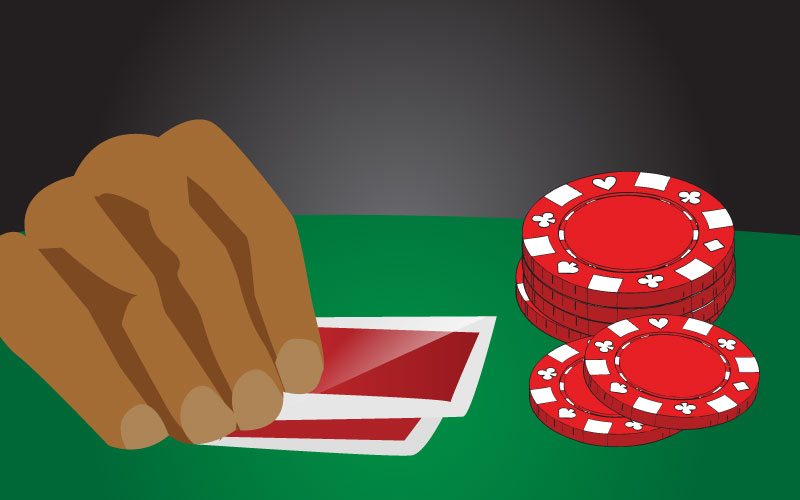
Poker Strategy
FTR will turn you into a winning poker player!
Welcome to FTR’s Poker Strategy section! We currently have over 400 free Poker Strategy articles in our ever growing archive.
These strategy articles contain as much information as you would find in multiple poker books – for free! Make sure you take advantage of this free poker strategy and poker training, on all of the topics shown below. Whether you’re a beginner, seasoned professional, cash game grinder, or tournament specialist, there is something to help take your game to the next level.
FTR has been featured by many poker websites and magazines over the years. In Bluff Magazine, Lee Jones mentioned that FlopTurnRiver.com has absolute golden information you can use to improve your game. Poker pro Chris “Wallace” Fox also recommended FlopTurnRiver.com as a free poker training site in Poker Pro Magazine. We also have many reader testimonials from our members saying FTR made them a winning poker player.
To discuss any of the poker strategy articles you find on our site, make sure to sign up for a free account in our poker forum. Let us help you become a winning player!

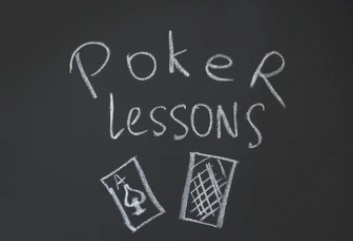
Developing a Feel for Equities in No-Limit Hold’em Part 3: Hitting the Flop
how equities change throughout a hand, the impact of flop texture, and the advantages of having draws on different board types
Playing Overcards in Limit Hold’em: Part 1
the nuances of playing overcards in Limit Hold'em, discussing the strategic considerations when faced with different board textures and opponent actions, the significance of understanding the number of opponents in the hand, and the value of continuation bets in various scenarios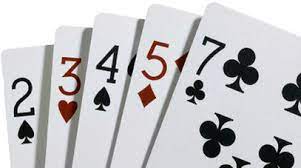
No-Limit 2-7 Single Draw Strategy (Part 1): The Basics
If you like game theory or just learning to read opponents well, then no-limit 2-7 single draw is a game that you will absolutely love.
Poker Hands Order | Poker Hands for Omaha Hi/Lo
Limit Omaha Hi/Lo has become popular due to its prevalence not only at dedicated Omaha Hi/Lo tables, but also in mixed games like HORSE. Half the pot is awarded at showdown to the high hand, and half is awarded to the best qualifying low hand.![[FTR Quick Tip 006] 3-Betting, Part 3: Merging](https://flopturnriver.com/wp-content/uploads/2016/08/poker-videos.jpg)
[FTR Quick Tip 006] 3-Betting, Part 3: Merging
the strategy of 3-betting with a merged range, discussing the importance of adjusting one's 3-betting approach based on the opponent's tendencies, especially against players who frequently call 3-bets, and highlights the value of using hands that can perform well post-flop when incorporating bluffs into this merged range
Psychology of a Tilting Player
the psychology of poker players who experience tilt, exploring the reasons behind such emotional reactions, including the impact of odds, ego, external factors, and cold cards
Pot Equity Edge (LHE)
In Limit Hold'em, you'll often have a pot equity edge, even with less than 50% equity, if there are many players in the hand. If you can get them to keep putting chips in the pot, you should probably raise with such an edge. If some of them will fold, though, you should probably just call.
soupie’s Win MTT Poker 12 – Poker Secrets and Tilt
various MTT poker strategies, emphasizing the importance of understanding betting patterns and making accurate reads on opponents, while also highlighting the detrimental effects of tilt and the need for emotional control, using vivid metaphors and references to literature to drive home key points
Poker Starting Hands with Deep Stacks
Deciding what range of hole cards you’re going to play depends largely on your stack size. If your stack equals 60BB or less, you should aim to hit big pairs. If it’s between 60BB-150BB, you can play suited connectors and gappers. Above 150BB, you can play cards with flush or straight potential.
Poker Hands
Find out the Ranking of Texas Holdem Poker Hands & the Order of each, from Royal Flush down to High Card, then take our hand ranking quiz!
Playing the Small Blind in an MTT Part 2
the strategy of playing the small blind in multi-table tournaments, focusing on the considerations when dealing with very short stacks, the importance of fold equity, and the factors that influence the decision to push all-in, especially when the stack is around five times the big blind
Chardrian’s Guide to Live Small Stakes Limit Poker (Part 6)
Small broadway hands are sometimes playable in Limit Hold'em. Suitedness greatly increases their playability, and there are many cases where you should fold them if unsuited. Small pocket pairs should be played almost exclusively for set value, which means you want a multiway pot.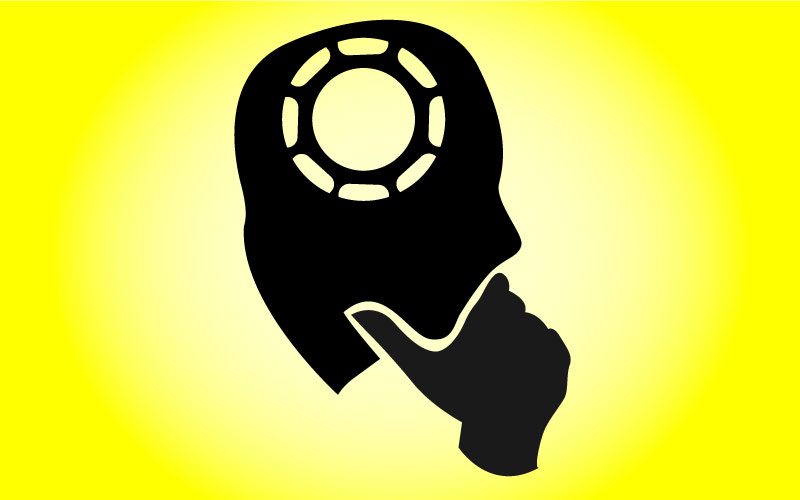
The Mathless Approach to Poker
a strategy that emphasizes understanding and adjusting to poker situations based on intuition and observation rather than relying heavily on mathematical calculations
Applications of EV Calculations (Part 3): River Checking vs. Bluffing
We have to consider the alternative to the aggressive option a lot of the time if we want to make sure that we're making the best plays possible.
An Introduction to Abstract Thought in Poker (Part 2)
Being able to think a little abstractly about the learning process in poker will help you to see the big picture instead of being stuck in the short term.
6 Max Starting Hands
optimal starting hands for 6-max poker games, emphasizing the flexibility and looser requirements compared to full-ring games, and categorizes hands into groups based on their strength and playability
soupie’s Win MTT Poker 13 – Improving Your Game
the concept of implied odds in poker, emphasizing the importance of understanding when and how to bluff, the significance of position, and the differences between aggressive players and maniacs
Moving Up in Low Stakes from $.05/.10 to $.25/.50
guidance for poker players transitioning from lower stakes to slightly higher stakes, emphasizing the significance of post-flop play, strategies like check-raising, taking free cards, understanding when not to fold, and aggressively raising draws
Why You Suck At Limit Holdem
It's common for beginning players to perform poorly at the poker tables. Some of the errors frequently displayed by novice Limit Hold'em players include playing too many hands, cold-calling with inferior holdings, folding good hands to a single bet on the river and more.
Live Poker Cash Game Strategies
insights into effective strategies for live poker cash games, emphasizing the importance of understanding opponents, adjusting to table dynamics, and making informed decisions based on various factors
Moving from $.25/.50 to $.50/1.00
guidelines for poker players on when and how to transition from playing at the $.25/.50 stakes to the $.50/1.00 stakes
Bust-Out Blues
It's happened to all of us at one point or another. Even the great Phil Ivey went bust several times before hitting his stride. Rather than beating yourself up over it, take your bust-out as an opportunity to learn.
Betting Poker Tells
the significance of betting patterns in poker, emphasizing how they serve as crucial tells for reading opponents, with professionals often relying on the nuances of how much and how players bet, rather than just physical reads, to gauge the strength of their hands
How to Multi-Table SnGs for Beginners (4 Tabling $6.50 by givememyleg)
how to multi-table Sit 'n Go (SNG) poker games for beginners, featuring a video tutorial by "givememyleg" on 4-tabling at the $6.50 stake level
Spenda’s 5 Biggest Leaks of a Losing NL Player – Leak 2
the significance of table and seat selection in poker, highlighting that optimal table and seat choices can greatly enhance a player's win rate without necessarily improving their poker skills
How, Why and When to Double Barrel in No-Limit Hold’em
In this week's column, we look at tons of different ideas that govern how, when and why to double barrel on the turn in no-limit hold'em games.
Thinking About Your Ranges When Continuation Betting
the importance of considering not just individual hands but the overall strength of your betting and checking ranges, guiding players on how to adjust these ranges based on the opponent's tendencies and the specific situation at hand
Applications and Limitations of the Alpha Value
the significance and proper application of the alpha value in poker, highlighting its utility in specific single-street situations, while cautioning against its misuse in multi-street scenarios
10 PLO Hands From Salsa4ever
discusses 10 specific Pot Limit Omaha (PLO) poker hands played by Salsa4ever, offering insights and strategic analysis for each hand
The UTG Live Straddle
Straddling under the gun is sometimes done in live, loose poker games. When a player straddles, the blinds lose value, but every other position gains value. Because the pot will play about twice as large as normal, you should change your starting hand requirements to take account of the straddle.
soupie’s Win MTT Poker 10 – Developing Skills
the importance of adapting one's poker strategy based on the table dynamics and opponents, cautioning against rigidly following any single approach, and highlights the need to play poker based on situations and opponents rather than just the cards in hand
ISF – Pocket Pairs
strategic intricacies of playing pocket pairs in high-stakes poker, advocating for a cautious approach that often favors folding preflop
Transitioning from Online to Live Play
If you’ve only played poker online, you will need to make some changes to your game before you play live in a brick-and-mortar casino. For instance, you’ll need to manually track your opponents’ stacks and the pots, abide by the casino’s house rules, tip your dealers and adapt to slower play.
ISF – Strategic Bet Sizing
the strategic importance of bet sizing in poker, highlighting that while many players have a "standard" bet size, adjusting bet sizes based on opponent behavior and one's own strategy can be more effective, with considerations for pot odds and manipulating probabilities![[FTR Quick Tip 006] 3-Betting, Part 3: Merging](https://flopturnriver.com/wp-content/uploads/2016/08/poker-videos.jpg)
Double Shootout SnG Satellite Strategy (Micro Stakes $1 by kingnat)
strategies for short-handed play in Normal speed Double-Shootout Satellites to the Sunday $1M, emphasizing the importance of deep short-handed play from the start and potential deep heads-up play
Beating 6 Max No Limit Holdem by Sauce123
Six-max poker tables offer excitement but require a different style of play than full-ring games. You will want to remain reasonable with your opening ranges, but three-bet liberally. You should c-bet a lot, but be more cautious on future streets.
Renton’s Small Stakes NLHE Ring Strategy: Preflop
in-depth guide on preflop strategy for small stakes No-Limit Hold'em ring games, discussing how to adapt to different table dynamics, the importance of position, and how to adjust your hand ranges based on the game's tightness or looseness
Texas Hold em Poker Hands Order
provides a comprehensive breakdown of the hand rankings in Texas Hold'em
Short Stacked and Dangerous
how to navigate the challenging situation of being short-stacked in poker, emphasizing the importance of not panicking, assessing the game's dynamics, and employing well-timed aggression
Salsa4evers PLO Hand of the Day
detailed analysis of a Pot Limit Omaha Hi-Lo hand played by Salsa4ever, discussing the strategic decisions made at each stage of the hand, from pre-flop to the river, with insights on betting patterns, hand strengths, and the implications of board texture
Balance is the Key
finding the right balance between playing too tightly and too loosely is crucial for success in poker, emphasizing that tracking software can assist but ultimately, adapting your strategy based on the game's dynamics is key
The Newbie Circle of Death
chronicles a poker player's journey through various phases of gameplay, from initial success and overconfidence to setbacks and self-doubt, ultimately emphasizing the importance of discipline, focus, and treating poker with respect to achieve consistent success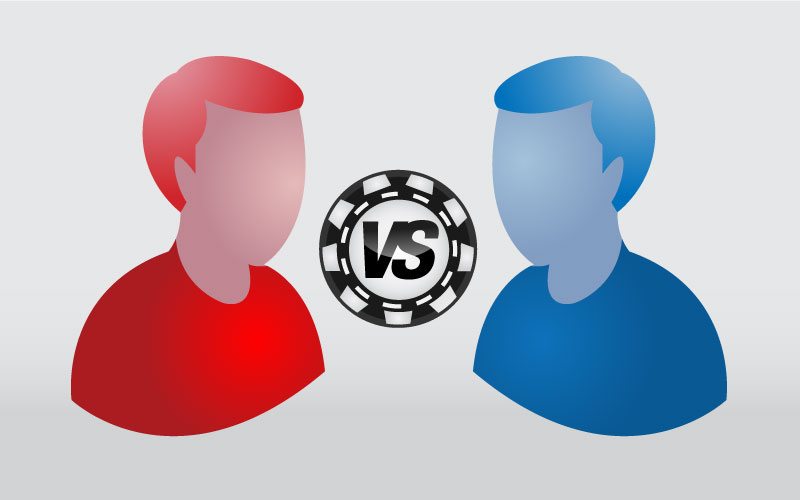
PokerStars Sit And Gos – Heads Up No Blind Increase
unique format of heads-up Sit & Go tournaments on PokerStars where the blinds do not increase, emphasizing that this setup encourages patient play and resembles a heads-up cash game, with strategies differing significantly from regular SNGs
Brodie’s Brick and Mortar Guide for Online Players
insights for online poker players transitioning to brick and mortar venues, discussing the nuances of selecting games, understanding different player types, and adapting to the unique dynamics of live play
Comparing and Evaluating Different Bluffing Lines
complexities of different bluffing lines in poker, examining factors like opponent's fold frequency, bet sizes, and pot sizes to evaluate which bluffing strategies offer the most value in various scenarios, such as leading versus check-raising
In the Trenches: Winning at Low-Limit Poker
Low-limit novice players will move all-in at the drop of a hat, or make ridiculous calls in obvious folding situations. They're playing for pennies, not pride, and their decisions fall into the “What the hell, let's gamble” category more often than veteran players would like.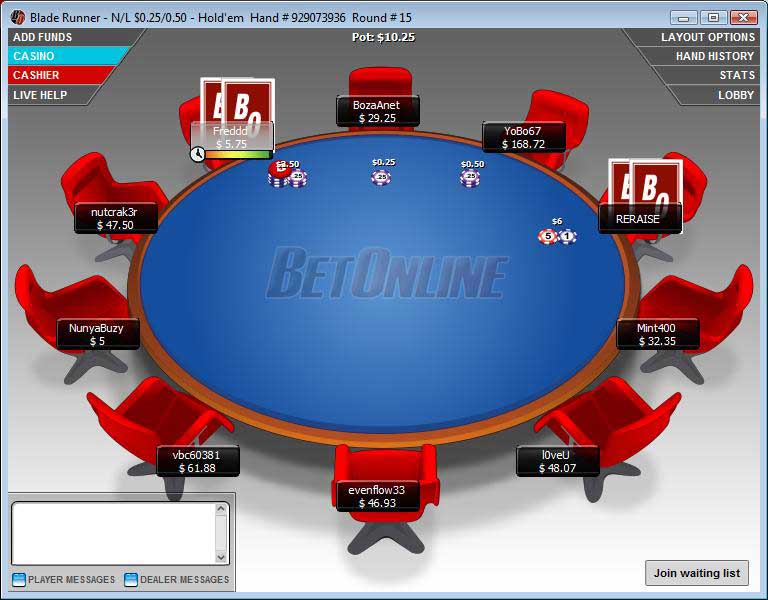
Texas Holdem Position
the critical role of player position in Texas Hold'em poker, explaining that having a favorable position allows you to gather more information on other players' actions, thereby enabling better decision-making![[FTR Quick Tip 006] 3-Betting, Part 3: Merging](https://flopturnriver.com/wp-content/uploads/2016/08/poker-videos.jpg)
[FTR Quick Tip 011] Playing Suited Connectors
the strategic value of suited connectors in No Limit Hold’em cash games, highlighting their potential to diversify one's playing range and avoid predictability
No-Limit Hold’em… A Flaw in Design
argues that the game of No-Limit Hold'em has inherent design issues, particularly in cash games, where skilled players can find themselves handicapped when facing novices who buy-in for the minimum, rendering many of the skilled player's strategies ineffective
Double or Nothing SNGs – Part III – Bubble Play & Collusion
end-game strategies for Double or Nothing Sit & Go poker tournaments, focusing on how to navigate the bubble phase and the role of collusion among players to knock out short stacks and secure a spot in the money
TLR’s Sit-n-Go Beginner Pitfalls
common mistakes made by beginners in Sit-n-Go poker games, such as overvaluing certain hands, misinterpreting pot odds, and failing to adapt to changing table dynamics
The Anatomy of an Adjustment
the importance of making strategic adjustments in low stakes poker to exploit opponents, emphasizing that many players fail to grasp the true essence of exploitation and offers insights on how to recognize and implement effective adjustments based on opponent behavior
How to Determine Whether or Not to Call an All-in Bet
A tricky spot in poker tournaments is deciding whether to call when your opponent has gone all-in. You need to carefully consider the pot odds to determine how much equity you need to proceed. Then compare your hand against his range to find out if you have the needed equity.
Starting Hands Chart and Groupings
Hand groupings for no limit texas holdem. Play the different hand groups differently depending on position.
The Essential Poker Tactics for New Players
We have four tactics here in this week's column that all players should learn about on a very high level.
Danny & Max Steinberg 6 Max Strategy & Concepts ($200nl Cash Game)
The two-part video features Danny (ISF) and Max (Massimo) Steinberg discussing their thought processes during hands, exploring both basic and advanced No Limit Hold'em concepts, with a particular emphasis on strategic manipulation and bluffing in 6 Max $200nl cash games
Playing the Small Blind in an MTT Part 1
When it's folded to your SB in a poker tournament, you ought to be shoving pretty wide if your stack is small. You need to consider how often the big blind will fold, how often he will call and win, and how often he will call and you will win to be able to calculate if it's profitable to go all in.
ISF – Forming Ranges
delves into the concept of forming hand ranges in poker, explaining that understanding the rationale behind your hand choices can help you self-repair leaks in your game
Be Vito, not Cyclone Hart
illustrates the psychological aspects of winning, emphasizing that both the "coward" and the "hero" feel the same emotions but react differently, and relates this to the mental challenges faced in poker tournaments, particularly after the bubble bursts
PLO Survival Guide
There's a lot of money to be made in Pot Limit Omaha, but if you're a No Limit Hold'em player, then you're likely making big mistakes. Read on to find out how to properly evaluate starting hands, estimate the value of drawing hands and control the size of the pot.
Essential Examples of Blockers in Poker
A good place to start working with ranges is looking at blockers, why they matter, how they work and what you can do with them.
How to Play AK When You Miss the Flop
If you want to know how to play AK in 3-bet spots where you miss the flop, then you need to consider a few key factors.
Short Handed Hold’em Beginner Tips & Table Selection ($200nl 6-Max by JGB)
JGB continues to explore the Sauce123 strategy in 6-Max $200 NL Texas Hold'em cash games, with a focus on table selection and featuring gameplay on two tables shown side by side
Spenda’s 5 Biggest Leaks of a Losing NL Player – Leak 5
the importance of hand-reading in poker, detailing how processing information from opponents, analyzing board texture, using the process of elimination, and diligent note-taking can enhance one's ability to make correct decisions and improve overall gameplay
The Proven Best Poker Training Books of All Time
Learning how to play poker correctly is a tough enterprise. Fortunately, you don't have to reinvent the wheel -- by reading the tips and advice of players who have gone before you, your own learning curve can be significantly accelerated.
NLHE Foundations Supplement A: How to Use This Course
how to effectively utilize the NLHE Foundations Course, emphasizing the importance of analyzing specific opponents and situations, generalizing learned tendencies, and proactively applying these insights to improve one's poker gameplay
Double or Nothing SNG Advanced Strategy – Early Stages
early-stage strategies for Double or Nothing Sit & Go poker tournaments, emphasizing the importance of tight pre-flop card selection, understanding the implications of the Independent Chip Model (ICM) when considering all-in confrontations, and the challenges of playing small to medium pocket pairs due to the tight nature of general DON players![[FTR Quick Tip 006] 3-Betting, Part 3: Merging](https://flopturnriver.com/wp-content/uploads/2016/08/poker-videos.jpg)
[FTR Quick Tip 015] Floating the Flop
the advanced poker strategy of floating on the flop, emphasizing its effectiveness when used judiciously, but cautioning against indiscriminate floating which can lead to becoming a predictable calling station
Practice makes Perfect
challenges the common adage, asserting that while practice is essential, it's the quality of practice that truly matters, emphasizing that perfect practice leads to optimal performance and highlighting the importance of understanding and correcting mistakes outside of live play
Modern Blind Stealing for No-Limit Hold’em
Online no-limit hold'em is known for focusing around a handful of plays, and stealing the blinds is one of those.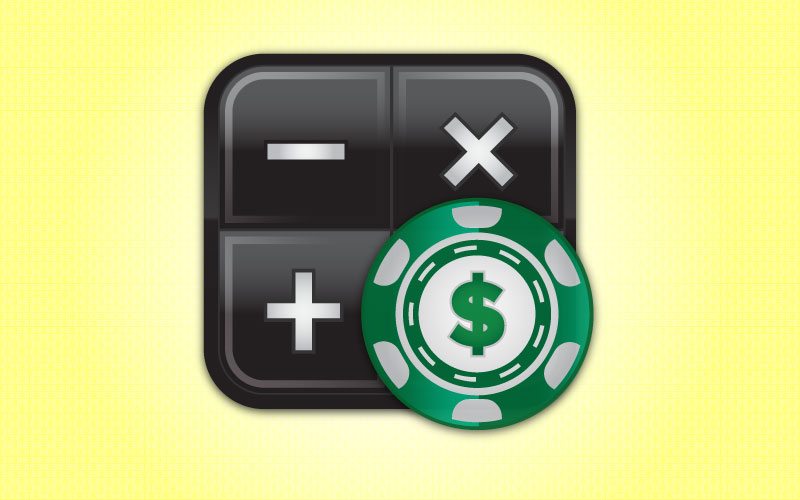
Calculating Hand Combinations
understanding hand combinations in poker, discussing the probability of specific hand occurrences, the impact of blockers on potential hand combinations, and how to quickly calculate the likelihood of certain hands based on visible cards and known blockers
The True Essence of Poker
The essence of poker can be broken down into two scenarios that you should be studying like your life depended on it.
The Value of a Bankroll
having a sufficient bankroll in poker is not just about weathering variance, but also about enabling more aggressive and effective play, as it allows you to take calculated risks that can force your opponents out of their comfort zones
Double or Nothing SNG Advanced Strategy – Pregame
in-depth guide to 'Double or Nothing' Sit-and-Go (DON SNG) poker tournaments, focusing on advanced pre-game strategies such as fold equity, stack management, and opponent tendencies
No Deposit – All Returns: How to Build a Bankroll from Nothing Part I
how to build a poker bankroll without making any deposits, emphasizing the importance of understanding poker strategies, learning from play money tables, and leveraging freerolls on poker platforms to earn real money
Tactics vs. Strategy (Part 1): The Study of Tactics in Poker
The study of tactical play in poker is about figuring out which plays are likely to work well against certain player types and against the field as a whole.
Building Your Bankroll & Moving Up
Considerations for moving up in stakes
Checking to Induce in No-Limit Hold’em
In games dominated by aggression, checking to induce is one of the plays that has been lost for a lot of players.
Please Stop Paying Off Loose/Passives at the Poker Tables
Having the faith to lay down hands when facing aggression from loose/passive players requires a strong understanding of why you can fold.
Dealing With Bad Beats
the inevitability of bad beats in poker, emphasizing that they are a part of the game, often reinforcing poor play in some players, and highlighting the psychological stages players go through when faced with such situations, from anger to indifference
Advanced Value Betting in Simple Scenarios With Game Theory
In order to value bet successfully on the river, you need to analyze your opponent's calling range. Thinking about unexploitable bluffing and calling frequencies can be helpful. Be sure not to value bet hands that will win less than half the time that your opponent calls.
Five Ways To Improve Your Game In the New Year
five key strategies for poker players to enhance their game, emphasizing the importance of honesty in self-assessment, being open to new ideas, practicing patience, understanding that perfection is unattainable, and maintaining an optimistic mindset
Playing Blinds in SNGs
Playing from the blinds in a SNG tournament is tricky. You'll often be getting very favorable pot odds and thus be inclined to play many hands. But you should remember that you'll be out of position without the initiative. In early levels, it's far better to stay out of trouble by playing tight.
NLHE Foundations #03: Calling to Close the Action in No-Limit Hold’em
third installment in the No-Limit Hold’em Foundations Course, emphasizing the importance of correctly analyzing situations where one can call to close the action, detailing the process of determining the equity needed for a profitable call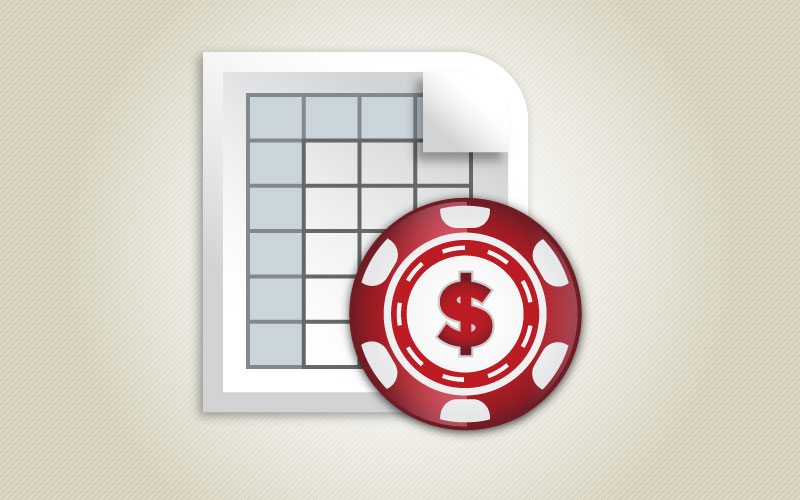
Do You Need Poker Tracking Software to Make Money?
Poker tracking software has become increasingly common lately. This leads to the question: Can a player succeed at higher levels without using a HUD or other software? What if the player is only playing a single table? The answer, as it should always be, is "it depends."
Expanding Your Pre Flop Range
strategies of broadening one's pre-flop hand selection in poker, emphasizing the significance of positional awareness, understanding opponents' tendencies, and choosing hands that allow aggressive play
Limit vs No Limit Texas Holdem Poker
contrasts Limit Texas Holdem with No Limit Texas Holdem, highlighting the distinct strategies and dynamics of each game, with a focus on the greater control and strategic depth offered by No Limit Texas Holdem, which allows players to exploit larger edges against less skilled opponents
NLHE Foundations #05: Putting Opponents on Pre-Flop Ranges (Part 2)
This time we're going to look at how to read 3-bets and completely dominate our opponents.
soupie’s Win MTT Poker 03 – Tilt, Patience
manage tilt and maintain patience in multi-table tournaments (MTT) poker, and other advice such as not stealing from emotionally wounded players, giving yourself multiple ways to win each hand, and taking time to think through crucial decisions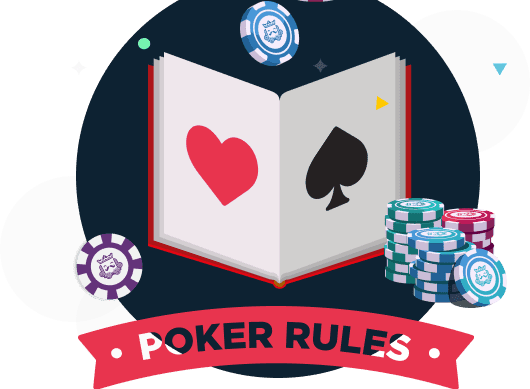
Crazy Pineapple Rules
Crazy Pineapple is just like Texas Hold'em, but it has a fun twist! There are three hole cards, and after the flop, you choose and discard one. Due to the extra card, hands tend to be stronger than they would be in a normal Texas Hold'em game.
Hyper’s 6-Max Limit Hold’em Guide Part 2
continuation of Hyper's guide on 6-max/short-handed play, emphasizing the nuances of shorthanded Limit Hold'em, including strategies for blind stealing, blind defense, fold equity, bluffing, and isolation bets
Poker Aggression Guide
the importance of understanding and utilizing aggression in poker, emphasizing the concept that if a player has decent equity against a range and perceives some fold equity, they should be inclined to bet or shove![[FTR Quick Tip 006] 3-Betting, Part 3: Merging](https://flopturnriver.com/wp-content/uploads/2016/08/poker-videos.jpg)
[FTR Quick Tip 002] Preflop Raise Sizing
the importance of appropriately sizing your preflop raises in poker, emphasizing situations when one might want to raise larger due to dead money in the pot or exploitable tendencies in opponents, and when to raise smaller, especially when facing short stacks or frequent three-bettors behind
You Can’t Make Your Opponent Fold
in Texas Hold'em poker, you can't force an opponent to fold; instead, you can only make it more difficult for them to stay in the hand by influencing their choices, such as by raising the stakes, ultimately leaving the final decision to them
Tactics vs. Strategy (Part 2): The Foundations of Strategy
Once you understand the basis of tactical play, you can start to move towards strategic play which will give you a lot more options for exploiting your opponents.
Beating Small-Stakes Cash Games
challenges and misconceptions faced by skilled players when playing at lower stakes, emphasizing the importance of adjusting one's strategy, avoiding over-bluffing, and recognizing that advanced poker knowledge can sometimes be a hindrance in games where straightforward play is more effective against weaker opponent
soupie’s Win MTT Poker Chapter 16 – Building Your Stack
strategies for effectively building and maintaining a chip stack during the middle stages of a poker tournament
Planning Ahead: Multi-Street Bluffing
This week we show you how to plan out your ranges for multi-street bluffing even if you aren't sure that you're going to be bluffing on those future streets.
Apply Yourself at Learning Poker
Whenever you read poker strategy guides or books, you must be prepared to study them carefully. Merely skimming the contents will not advance your game very much at all. You should always consider the strategic implications of anything you read to get the maximum value from it.
Just Where Will Online Poker End Up?
the future trajectory of online poker, discussing the increasing sophistication of players due to the availability of coaching sites, training tools, and software
Game Flow in No-Limit Hold’em Cash Games
the concept of "game flow" or "meta game" in No-Limit Hold'em cash games, emphasizing the importance of understanding the underlying dynamics and patterns of a game, and how players can adjust their strategies based on the evolving game environment
Online Poker Multi-Tabling Strategy
the balance between playing multiple tables and maintaining a quality game in online poker, offering tips on when to add more tables, how to use software aids like HUDs, and the importance of focusing on one's "A" game to maximize profitability
PLO Pot Limit Omaha Books
recommendations for books to read for those interested in learning Pot-Limit Omaha (PLO), including titles by Jeff Hwang, Stewart Reuben, and Rolf Slotboom, among others, while also discussing the value of each book's content
Poker Goals
the importance of setting proper goals in poker, cautioning against monetary objectives due to their unpredictability and potential to negatively influence gameplay; instead, it advocates for achievable, volume-based goals that don't compromise decision-making![[FTR Quick Tip 006] 3-Betting, Part 3: Merging](https://flopturnriver.com/wp-content/uploads/2016/08/poker-videos.jpg)
FTR SNG Strategy: Maximizing value in HU situations Part 2
insights into optimizing profits in heads-up poker situations by reviewing three specific hands
Should You Multi-Table?
explores the pros and cons of multi-tabling in poker, suggesting that while it can increase earnings, it's not suitable for everyone and may depend on individual skills, the competitive landscape, and the ability to adapt to faster gameplayMoving from $1/2 to $2/4
Although you have the bankroll, you may not decide to move up just quite yet, which is more than understandable. However, there are two reasons in doing so: First: The players play just as bad at $2/4 as they do in $1/2. In essence, the same quality play will net you...
iPhone Online Poker How-To
You can easily play poker on your iPhone or other iOS device. Despite the fact that Apple doesn't like gambling apps in its app store, you can use three simple techniques to start playing almost immediately. Remember to use a reliable connection when playing for real money.
More Poker Tells and Reviews
When playing live poker, you can get important tells on your opponents by carefully paying attention to their movements and actions. Whenever players seem to deliberately go out of their way to give you information, the actual information is usually the opposite of what they're trying to tell you.
Bluff or Check? Missing the Flop in NLHE (Part 1): Introduction
There are several factors that you have to learn about when deciding whether or not to bluff when you've missed the flop, and we'll cover them in detail.
Pre-flop Strategy – Starting Hand Rankings: Group 5
he intricacies of playing Group 5 hands, which include low pocket pairs and certain combinations like KJ and QJ, emphasizing the importance of seeing the flop for a low cost, understanding the potential risks of being dominated, and making informed decisions based on the table dynamics, opponents' actions, and one's own chip stack
Renton Theorem aka ABCD Theorem
When playing No Limit Texas Hold'em poker, it's common to try to make the best play with the hand you're given. However, you should also be considering how to maximize the value you get out of your whole range of hands. Usually, your range will be divided into four parts.
chardrian’s Analysis of a $26 Freezeout
Sometimes, it's valuable to go over your completed poker tournaments with a hand-history viewer to analyze spots that you are unsure about and identify errors in play. You can use a replayer that automatically cuts out hands that you folded preflop so that you can focus on the important hands.
Nine Noobie Myths About Microstakes NLHE
debunks nine common misconceptions that beginners have about playing microstakes No-Limit Hold'em poker
Cbets, HUD Reads and Problem Solving
It's possible to apply classic decision-making processes to poker games. For example, by understanding your c-betting leaks, coming up with a plan to fix them, implementing that plan and observing the results, you can make drastic improvements in your c-betting game.![[FTR Quick Tip 006] 3-Betting, Part 3: Merging](https://flopturnriver.com/wp-content/uploads/2016/08/poker-videos.jpg)
[FTR Quick TIP 016] Identifying Fish
quick tip on identifying weaker players, often referred to as "fish," in poker, emphasizing that the majority of profits come from exploiting these players and providing guidance on how to quickly recognize and take advantage of them in No Limit Hold'em cash games
An Introduction to the [0, 1] Model for Ranges
It's important to have a general model for hand ranges in poker so that you can study the essence of poker without restrictions.
